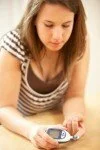Blood sugar monitoring shows little benefit
For type 2 diabetics who buy Actos or other medications rather than taking insulin, self-monitoring of their blood sugar levels may have only a minimal benefit, according to a new study.
For type 2 diabetics who buy Actos or other medications rather than taking insulin, self-monitoring of their blood sugar levels may have only a minimal benefit, according to a new study. The findings could have major implications for the future of diabetes treatments. While self-monitoring is generally perceived to be a critical part of blood sugar regulation, it can become costly over time. Many people may be better off forgoing monitoring if there is no real benefit. To assess the effects of self-monitoring, researchers from VU University Medical Center in Amsterdam reviewed the findings of 12 previous investigations, which studied the effects of self-monitoring in more than 3,000 participants. The results showed that participants' HcA1c scores - a measure of glucose control over time - improved by just point 0.3 percent after initially starting self-monitoring, but this benefit was negated in most individuals after 12 months. The researchers said their findings indicate that diabetics not taking insulin do not make lifestyle changes based on the results of their blood tests. Therefore, the practice may not be necessary in those who require a prescription to buy Actos. |
Toll-Free Tel : 1-877-278-5387
Toll-Free Fax: 1-877-278-5359
Toll-Free Fax: 1-877-703-3038
Toll-Free Fax: 1-877-703-3038




